
Transcription
Harlan Richards
January 11, 2015
What Is Courage?
I recently reread the book, To Kill A Mockingbird, by Harper Lee, a fictional account of the prosecution of a black man for raping a white woman in the American south back when lynchings were still common.
Atticus Finch was a small town lawyer appointed to defend an innocent black man and faced a lot of pressure from his white neighbors and friends for doing so. It was a lost cause. No white jury in the Jim Crow south would ever acquit a black man accused of raping a white woman. The following quote is Atticus Finch explaining to his son, Jem, why he wanted Jem to read to Ms. Dubose (an elderly woman who was near death) every day. Ms. Dubose was addicted to morphine and chose to break her addiction before she died so she could die with dignity. Jem reading to her every day helped her to put off taking a shot of morphine for longer and longer periods until she could quit altogether:
"I wanted you to see something about her--I wanted you to see what real courage is, instead of getting the idea that courage is a man with a gun in his hand. It's when you know you're licked before you begin but you begin anyway and see it through no matter what. You rarely win, but sometimes you do."
I copied this quote from the book because I wanted to write about courage, about how sometimes we need to stand up and do the right thing regardless of the cousequences or our chances of winning. There are countless prisoners standing up to oppression throughout the world. Unsung heroes whose stories will never be told, whose sufferings will only be witnessed by their oppressors and fellow prisoners, and who have virtually no chance of winning. As I pondered how I could bring these courageous men and women to light as an example of courage, something occured which showed the world what true courage is all about.
The editor and staff at Charlie Hebdo, a French satire publication, had been firebombed and threatened by Islamic fundamentalists for printing cartoons making fun of Muhammad. These men and women refused to cave in to the threats made against them. They continued to puslish whatever they wanted and insisted they had the right to free speech.
We all know what happened. In January 2015, two French terrorists stormed the offices of Charlie Hebdo and killed 12 staff members. The staff of Charlie Hebdo refused to censor the magazine and became martyrs for the cause of free speech. They had police protection and probably never thought they would be killed for their actions. But that does not diminish their courage or their willingness to say that some principles are more important than a safe, comfortable life.
We cannot crumble in the face of adversity. We must be strong and courageous, choosing to stand on our principles regardless of the price we may have to pay for our actions.
Sometimes I speak out against the DOC or elected officials. I know that I may face retaliation for speaking out but I do it anyway. I often wonder whether I am brave or foolish. Am I taking a principled stand becasue I am courageous? Or because I don't have a lick of sense? As I have gotten older, my tendency is to follow that old adage, "discretion is the better part of valor." In other words, I'm more inclined to bite my tongue rather than face the inevitable retaliation.
But now I'm facing the prospect of diminishing returns for my craven behavior. After all, the only possible reward for keeping my mouth shut is the increased chance of release on parole. After 30-plus years in prison, and turning 61 this month, I'm starting to wonder why I bother. I'm not in prison because of anything I've said or done. I'm here because of Scott Walker's political agenda. I can't beg, buy or borrow a parole. Why should I keep trying and hoping for a parole when I know there's nothing I can do to earn a parole?
Does it take courage to stay positive under these circumstances? Or am I just so worn down after decades of imprisonment that they broke my spirit? But I digress. Let's get back to the real heroes.
What really impressed me about the Charlie Hebdo massacre was the response of the French people. They were not cowed or intimidated. They made signs that said "Je suis Charlie" and carried them in massive demonstrations. They chose to stand up to terrorism and insist that their right to free speech will not be taken away by thugs with automatic weapons.
VIVA LA FRANCE!
January 12, 2015
Keeping Warm In Prison
For anyone living in Canada or the northern half of the United States, I don't need to explain what it's like going outside in below zero (<0'F) weather when the wind is blowing. Here in Stanley, the winds blows almost constantly. In fact, it is so windy, so often, that when the wind doesn't blow, it's a topic of conversation.
Prisons in the 19th and early 20th century were cold and drafty. Prisoners shivered in rags and did what they could to stay warm. In the 1970s and 1980s, Wisconsin prison officials provided warm clothing for all prisoners and adequate heat in buildings to ensure that prisoners could live comfortably.
Not anymore. SCI spends vast amounts of money on air handling systems which constantly malfunction. On one side of the building I live in, men wrap up in blankets or put on extra clothing to stay warm. On the other side, men strip down to their shorts because their cells are so hot. Maintenance personnel are either unwilling to (or can't) adjust the heating system to provide balanced heat throughout the building.
Prison uniforms are made of thin, dark green material - suitable for summer wear. Unfortunately, prisoners have to wear them all year around. Prisoners are issued one set of thermal underwear each. Wearing thermal underwear can help compensate for the thin prison uniforms but eventually they have to be turned in for washing. It takes 3-5 days for state laundry to be washed and returned. Even if a prisoner was willing to wear the underwear for 3-5 days before turning it in for washing, it still means he will only be able to keep warm half of the time.
The solution the DOC has come up with is to allow us to but sweat suits (for use on the living units and at recreation only) and personal thermal underwear, which is fine - if we can afford it. Sadly, prison wages are so low, without money coming in to the prisoners from family and friends, prisoners cannot afford to buy clothing they need to keep warm.
This applies to outside clothing as well. We are issued cheap cloth coats which are wholly in adequate for keeping a person warm at temperatures below 40'F. We also receive orange stocking caps and thin cotton gloves (such as those worn for gardening). Once again, for those who can afford it, scarves, gloves and hats are available for purchase.
But SCI officaials have found a way to discourage the wearing of personal hats, scarves and gloves. Any prisoner who has to go to Health Services Unit (HSU) for medical attention must now hang his coat (along with personal hats, scarves and gloves) in an unmonitored hallway outside of HSU. Any prisoner who cannot afford his own personal winter gear may now go to HSU and help himself to anything he can find in the unmonitored hallway. The victims of theft have no recourse. They are prohibited from carrying personal items inside HSU and the DOC will not reimburse them for stolen items. To make matters worse (if that's possible), once a prisoner reports the theft, he must wait 90 days before he can order replacement winter gear. By that time, winter is over and he doesn't need it.
In my opinion, the callous disregard for the comfort and well-being of prisoners in Wisconsin prisons is a worse crime than many of the crimes which have put over 20,000 people at the mercy of merciless DOC officials. Wisconsin spends over a billion dollars a year on its prison system - the bulk of which goes to wages and benefits for staff. When it comes time to cut costs, staff wages are sacrosanct, while prisoners are subjected to ever shoddier clothes, poorer food and increasingly oppresive rules to keep increasingly disgruntled prisoners in line.
History will be the judge of what is going on in Wisconsin prisons and our descendants will look back on these days with shock and horror much like we look back on the slave days of the 18th and 19th centuries.
Other posts by this author
|
2021 jun 25
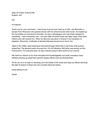
|
2021 may 25
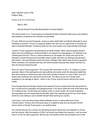
|
2021 apr 23
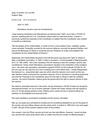
|
2021 feb 19
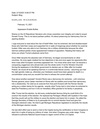
|
2021 feb 17
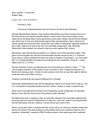
|
2021 feb 15
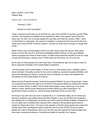
|
More... |
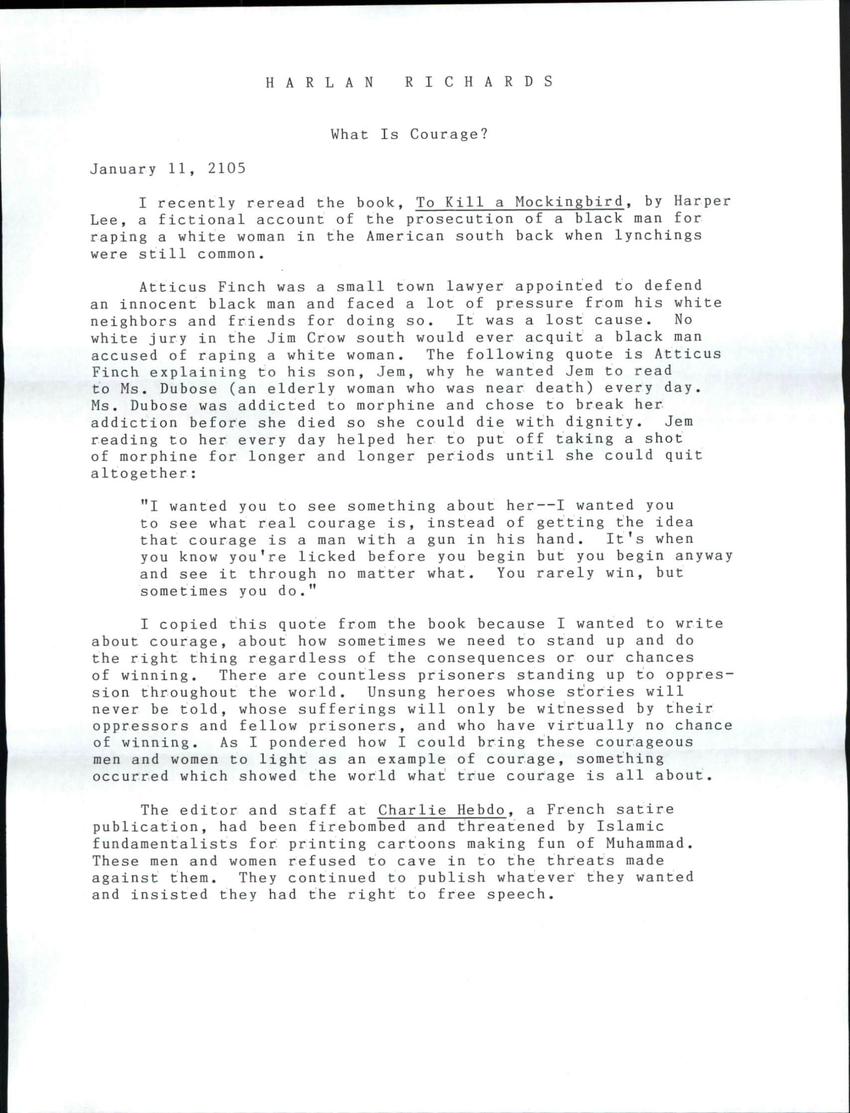
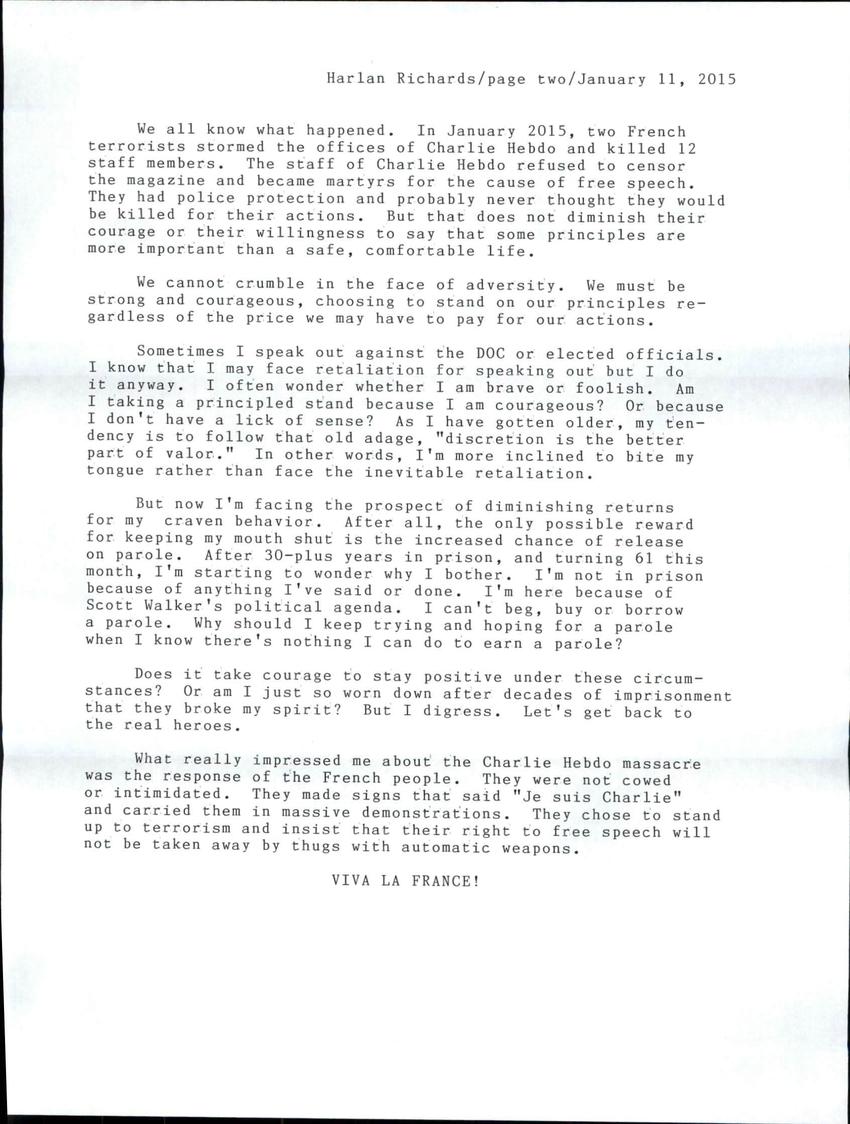
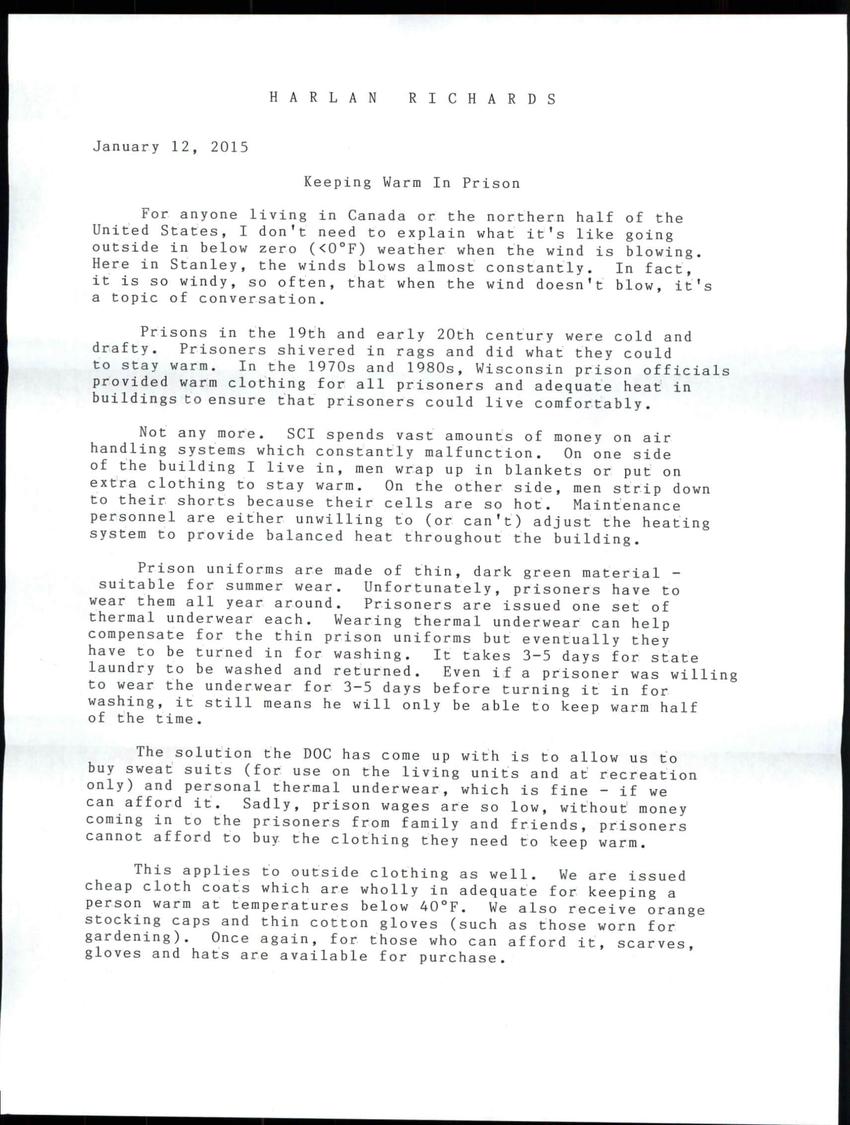
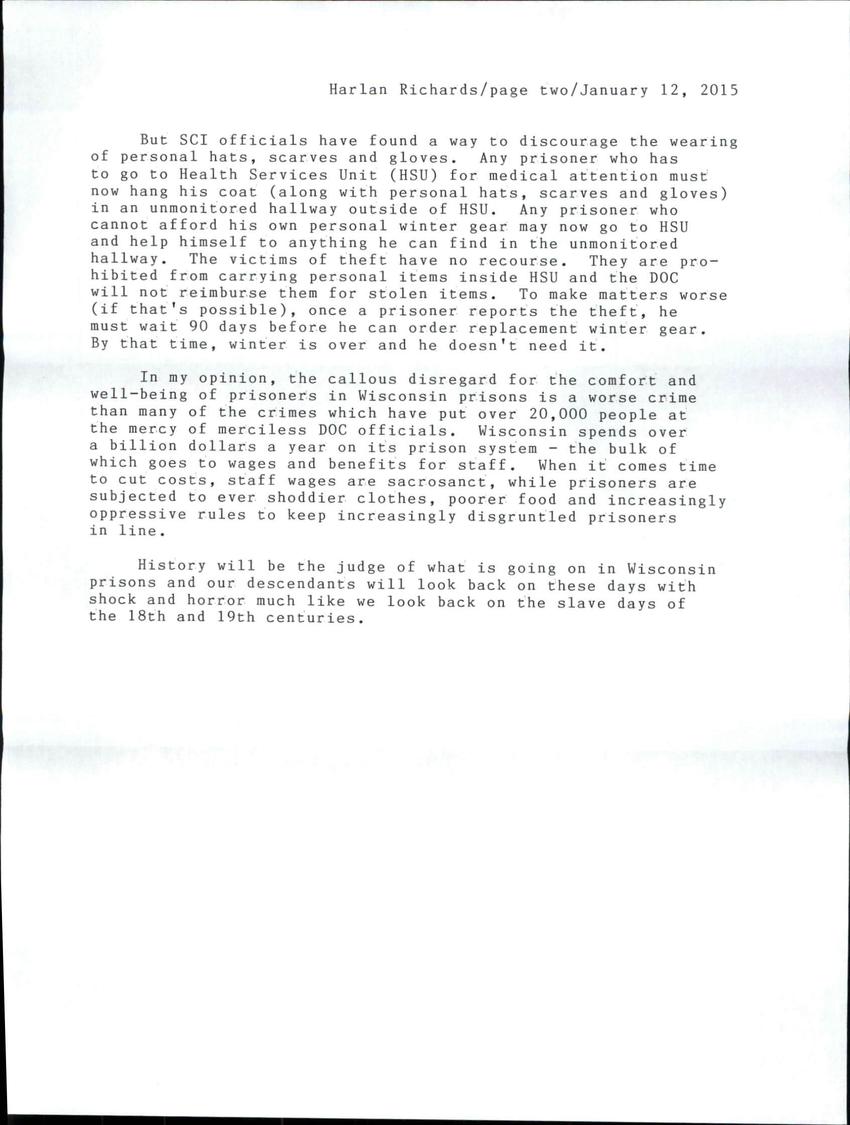

Replies